2.5: ‘Father Returning Home’
Maharashtra State Board
Class 12, English

Dilip Chitre

Dilip Chitre (1938-2009) was an acclaimed Indian poet, writer, and filmmaker, celebrated for his contributions to Marathi and English literature. He was known for his profound and reflective poetry. His works often delved into the complexities of human emotions, urban life, and existential angst, making him a significant figure in contemporary Indian literature.
- Bilingual poet and translator
- Remarkable work in Marathi and English
- His creativity extends to painting, film-making and as a magazine columnist
- ‘Sahitya Akademi Award’ for his work ‘Says Tuka’
- His work is based on the themes like exile, alienation, self-disintegration and death

Poem: ‘Father Returning Home’
Father Returning Home is a poignant poem written by Dilip Chitre. It captures the loneliness and alienation experienced by an elderly man as he navigates his daily commute back home.
- The poem is taken from ‘Travelling in a Cage’. It draws a portrait of a suburban commuter.
- The poem uses vivid imagery to describe the father’s journey on a crowded train, his physical exhaustion, and the dreary, lifeless environment he returns to.
- Major themes of the poem include isolation, routine, and the generational gap. The father feels out of place in a world that seems to have moved on without him.
- The tone of the poem is melancholic and reflective, emphasizing the father’s solitude and the emotional distance between him and his family.
- The poem is written in free verse, which allows for a natural and flowing depiction of the father’s experiences and emotions.
- The poem is a powerful exploration of the feelings of disconnection and neglect that can accompany old age in a rapidly changing society.

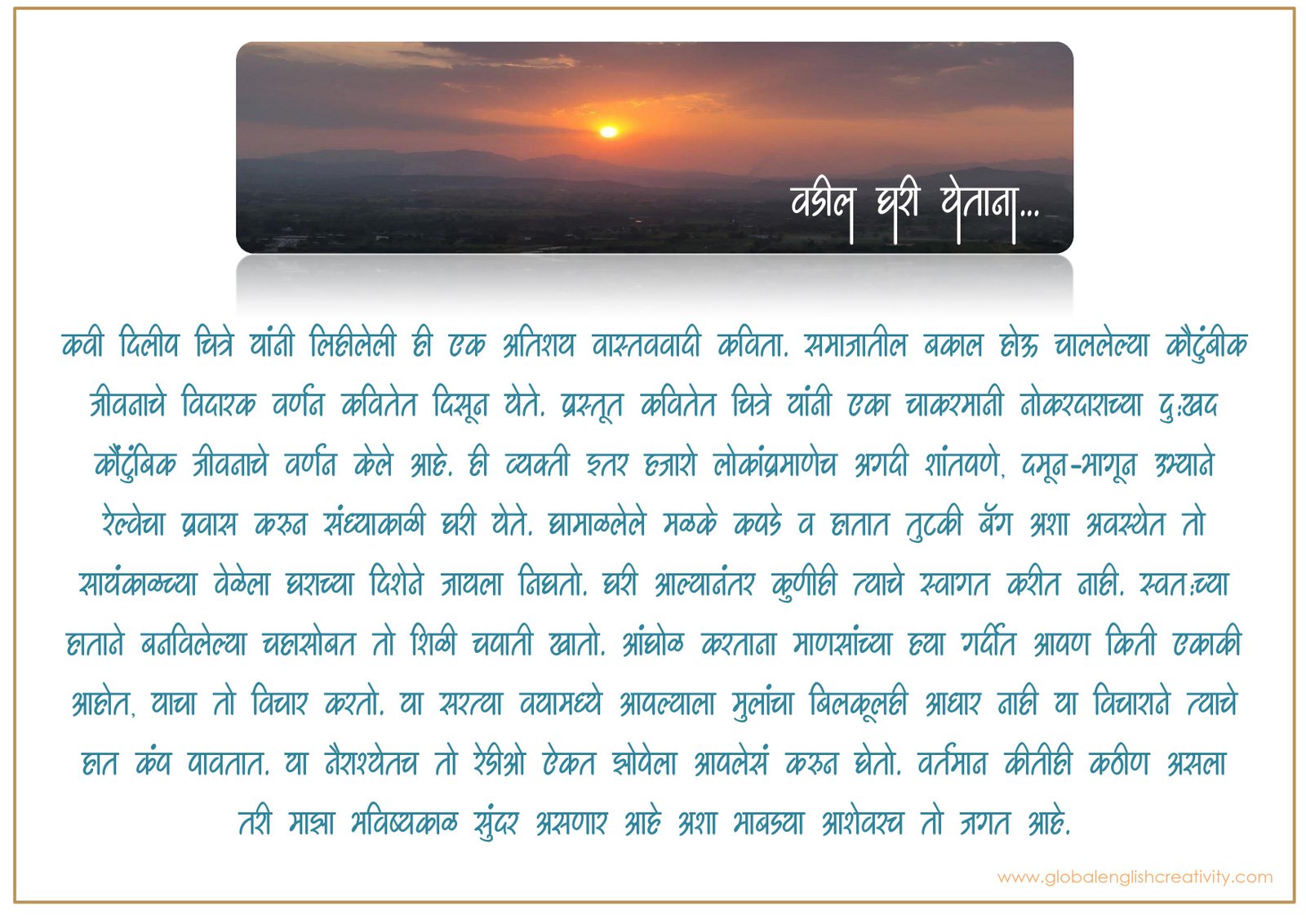
 Poem
Poem
My father travels on the late evening train
Standing among silent commuters in the yellow light
Suburbs slide past his unseeing eyes
His shirt and pants are soggy and his black raincoat
Stained with mud and his bag stuffed with books
Is falling apart. His eyes dimmed by age
Fade homeward through the humid monsoon night.
Now I can see him getting off the train
Like a word dropped from a long sentence.
He hurries across the length of the grey platform,
Crosses the railway line, enters the lane,
His chappals are sticky with mud, but he hurries onward.
Home again, I see him drinking weak tea,
Eating a stale chapati, reading a book.
He goes into the toilet to contemplate
Man’s estrangement from a man-made world.
Coming out he trembles at the sink,
The cold water running over his brown hands,
A few droplets cling to the greying hairs on his wrists.
His sullen children have often refused to share
Jokes and secrets with him.
He will now go to sleep
Listening to the static on the radio, dreaming
Of his ancestors and grandchildren, thinking
Of nomads entering a subcontinent through a narrow pass.
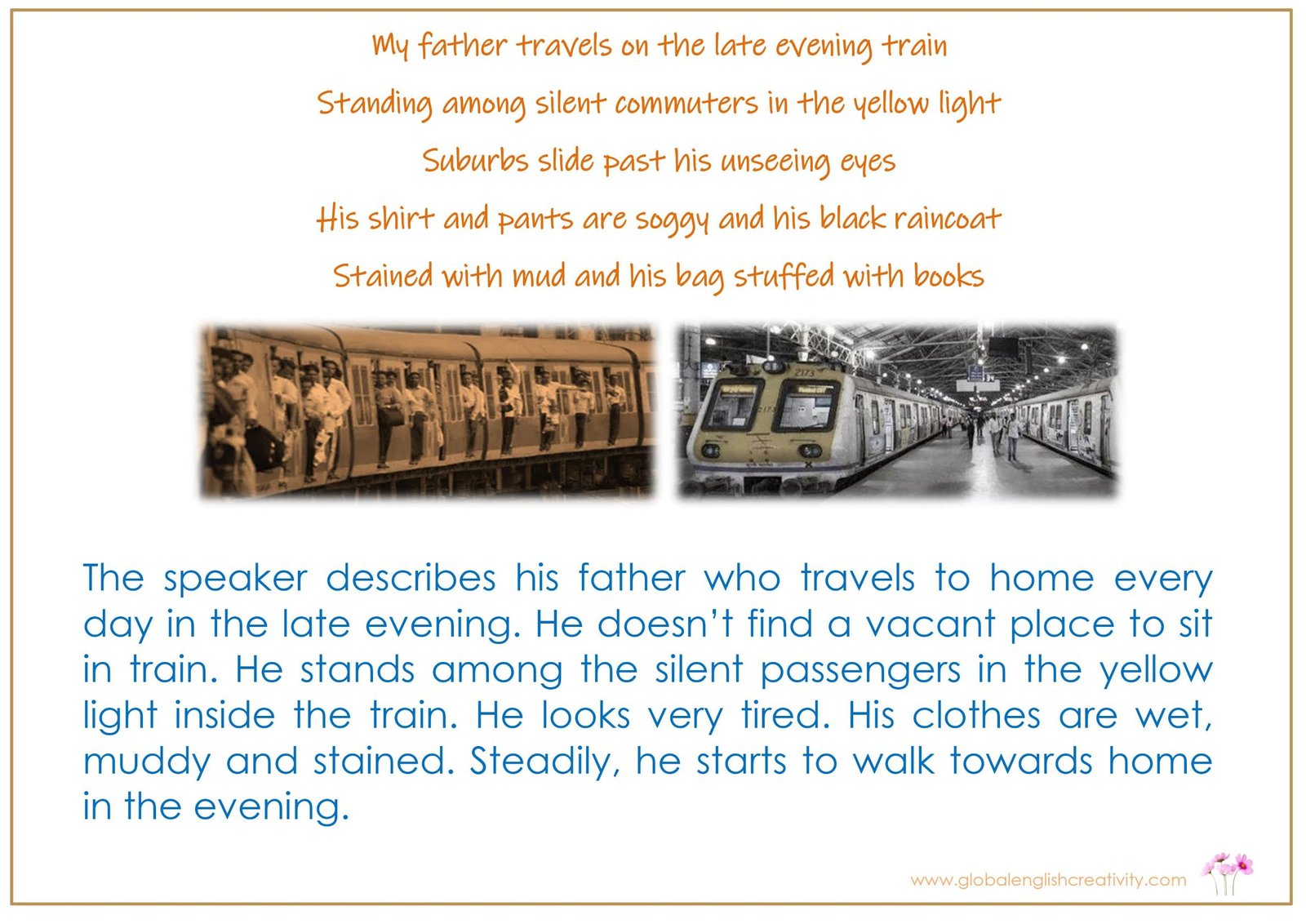
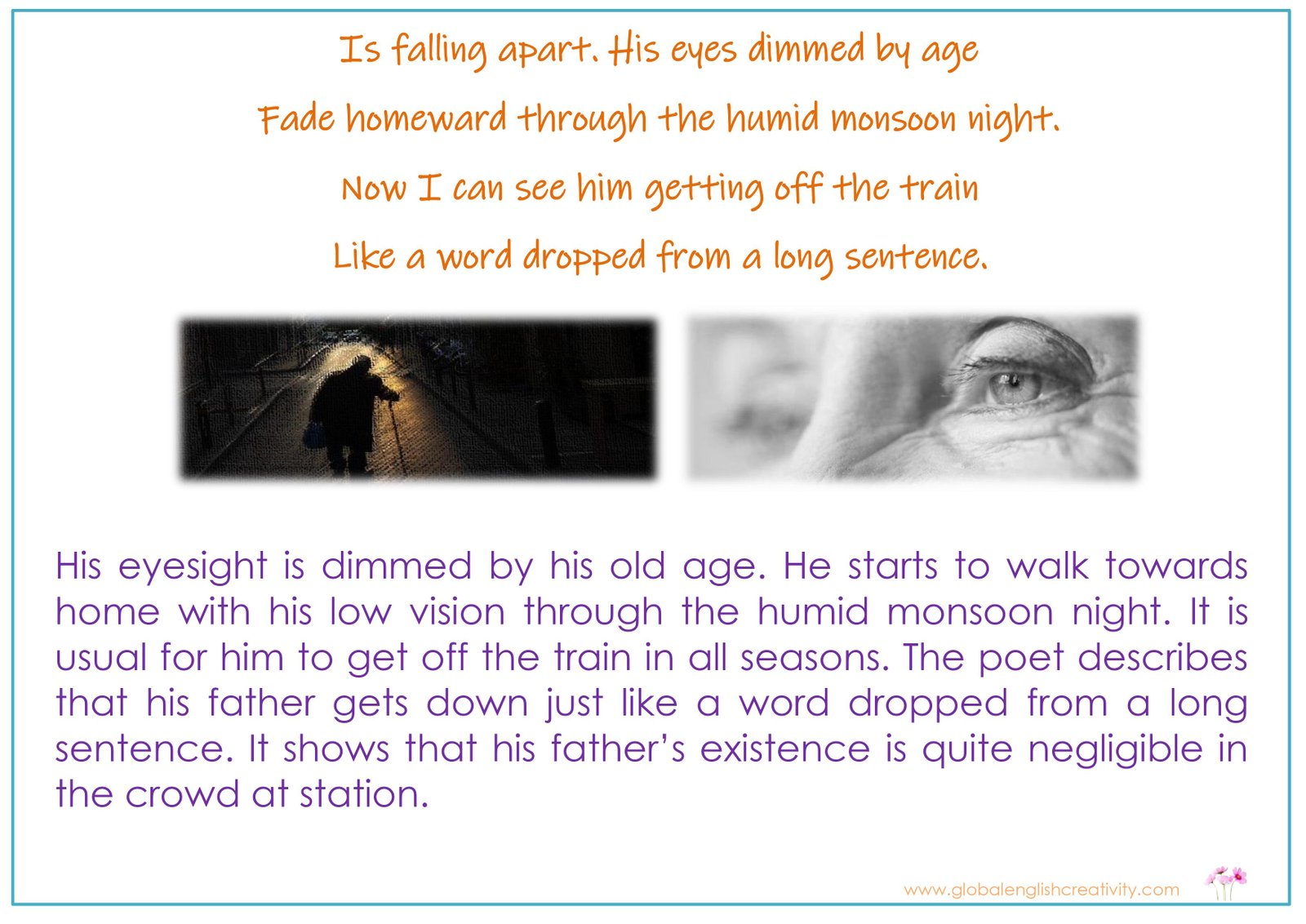
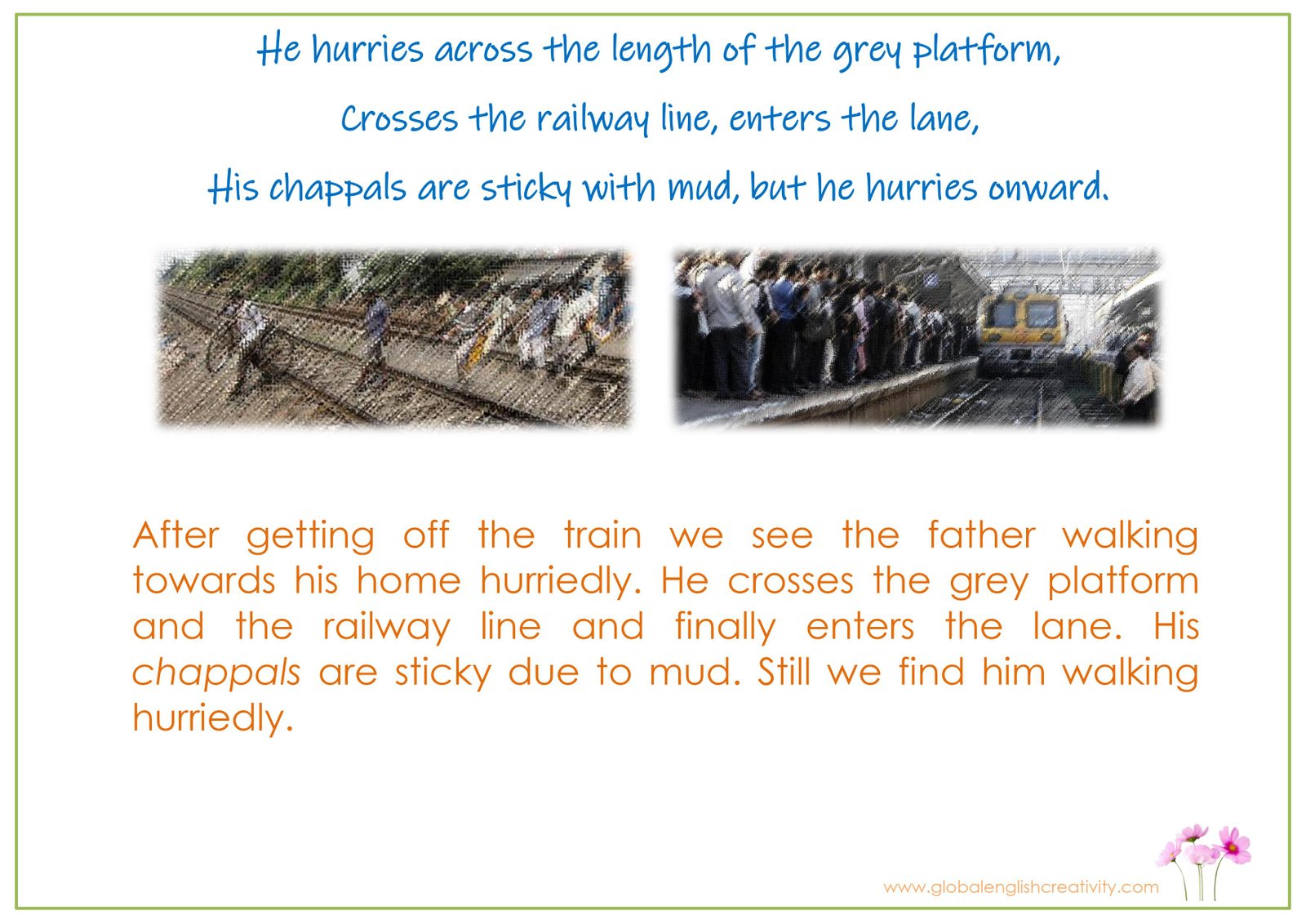
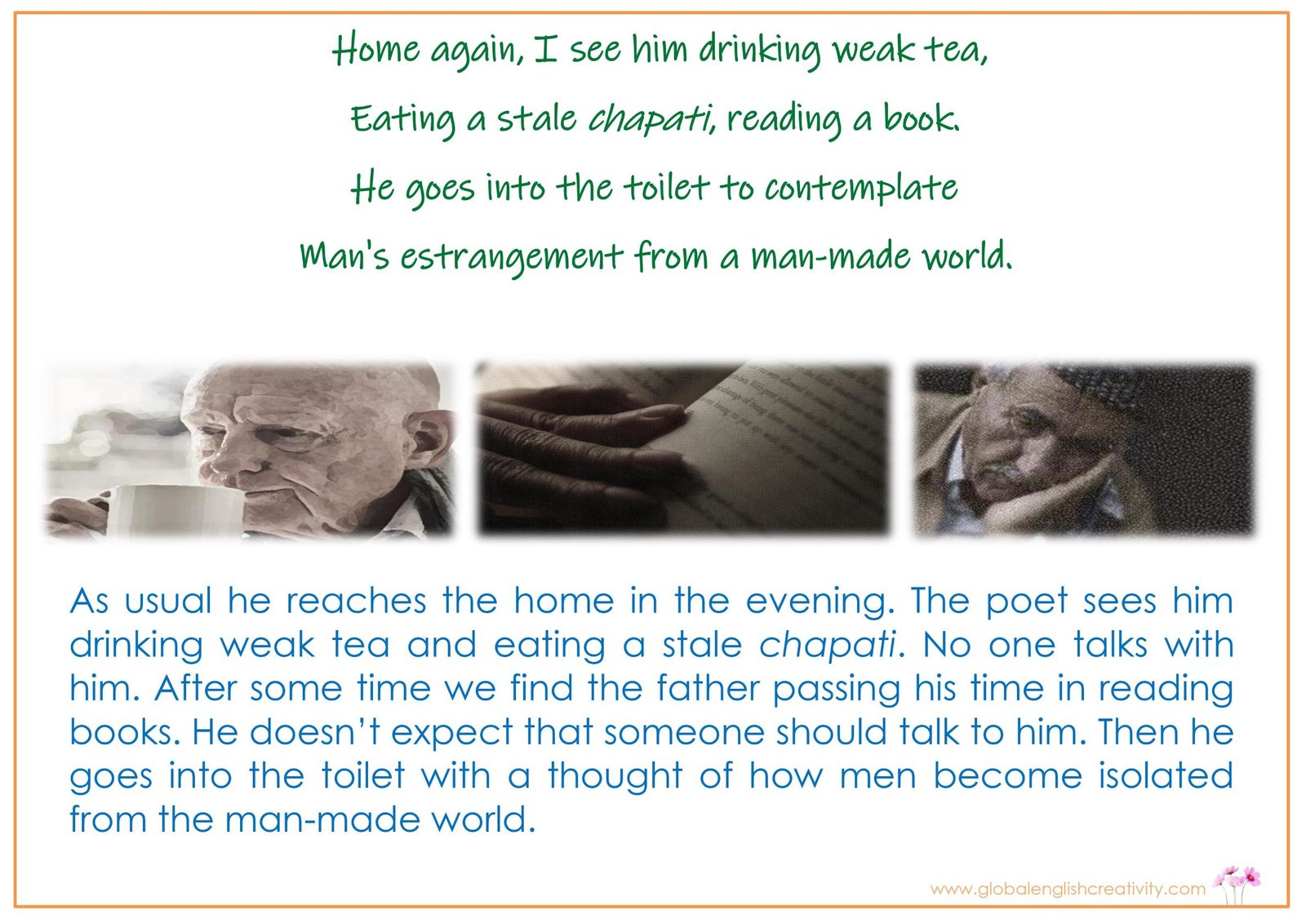
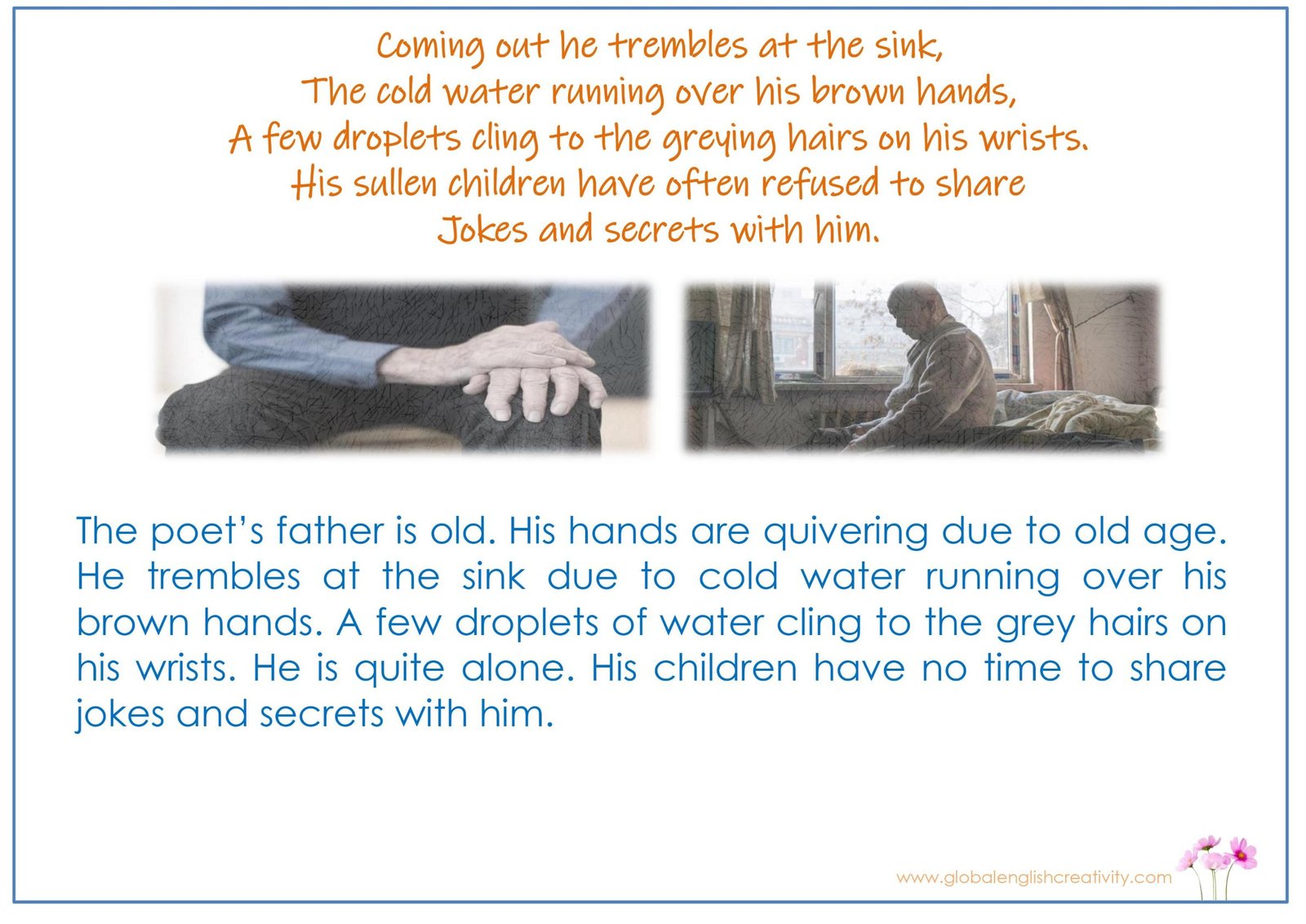
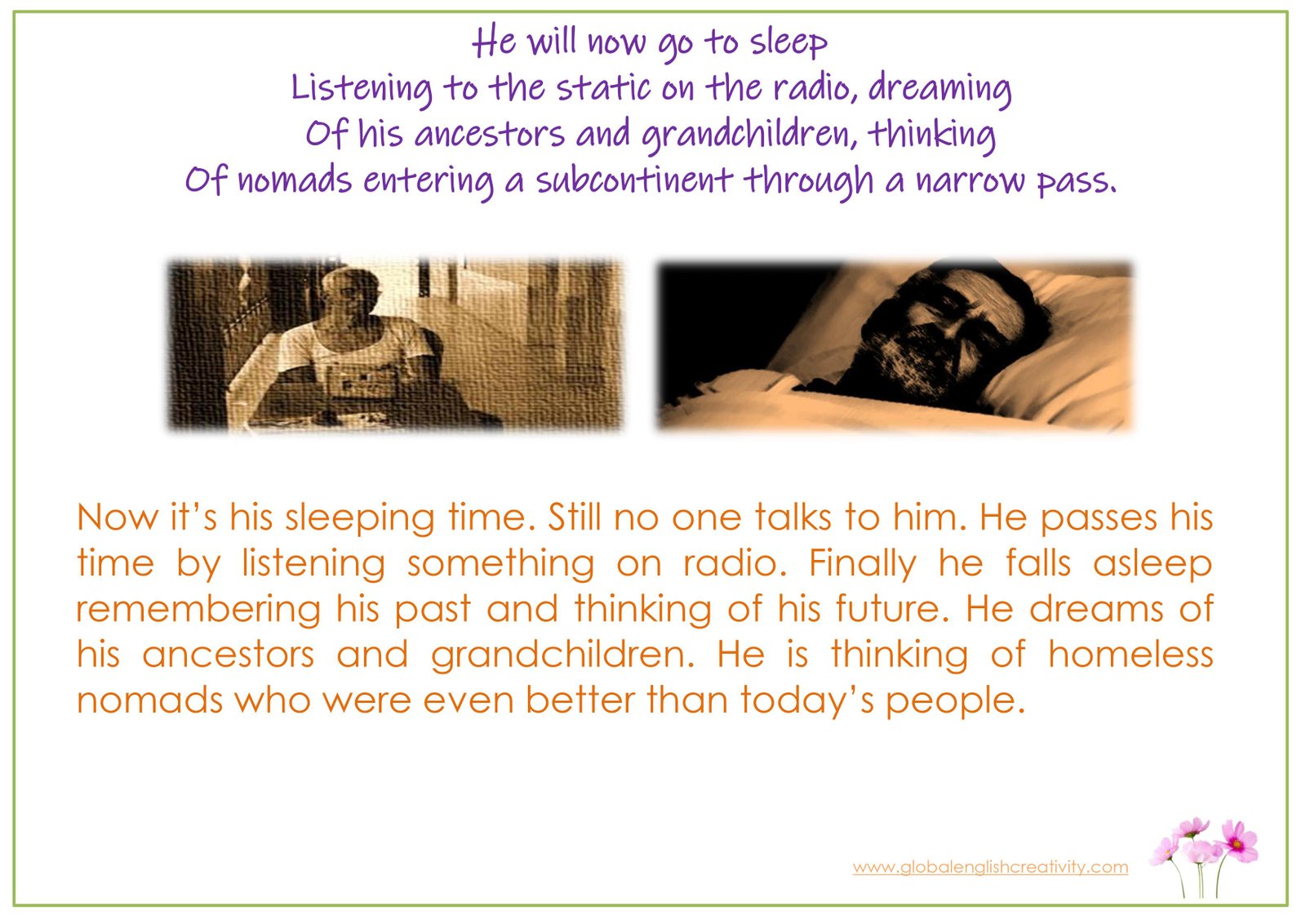
ICE BREAKERS
Activity: Difficulties to be face while commuting by public transport:
Activity: Solutions to avoid difficulties while travelling by public transport:
- Giving them your place to sit
- Helping them to take tickets
- Asking about their health
- Supporting them to carry luggage
- Offering them food and water
- Staying calm and courteous to fellow passengers and staff
- Carrying minimal luggage to make boarding and alighting easier
- Checking the schedule and routes in advance to avoid confusion
Activity: Complete the following Table:
Activity: Write your duties towards the FAMILY:
Activity: Write your duties towards the SCHOOL/COLLEGE:
BRAINSTORMING
Activity: Discuss with your friend the difficulties faced by the father in the poem:
- Physical strain from daily commute
- Emotional isolation
- Alienation in the urban environment
- Lack of meaningful communication with family
- Monotonous and unfulfilling routine
- Cultural and generational disconnect
- Not eating nutritious food
- No source of entertainment except radio
- No involvement in family
- Not respected by family members
- Children do not interact with him
Activity: Discuss the character sketch of the father with the help of the given points: (His pathetic condition, the treatment he receives at home, his solitude, the way he tries to overcome it)
In the poem “Father Returning Home,” the father is shown as sad and lonely. He feels tired from his daily travel and emotionally cut off from others. At home, his family doesn’t give him much love or attention. His children don’t talk to him, which makes him feel even more alone. Even though he lives in a busy city, he feels separate from the life around him. The father tries to escape his loneliness by doing simple things like reading a book while eating, but these only make him feel how empty his life is. This shows how isolated he feels and how hard it is for him to find meaning and connection in his life.
Activity: Given below are the ideas conveyed through the poem. Match the pairs and draw out the hidden meaning from those expressions:
Answer
| Expression | Meaning |
| a. Children avoid expressing themselves. | 2. Hostility of children |
| b. Father was deprived of refreshing hot beverages or nourishing diet. | 5. His basic daily requirements were also not catered to. |
| c. The father hurries home crossing railway line | 1. Father is so eager to meet family members that he even doesn’t bother about his safety |
| d. The father was destined to listen only to the cracking sounds on media. | 9. The father couldn’t even fulfil the least expectation of entertaining himself. |
| e. His sordid present is devoid of any hope. | 3. Indulge into his past and future. |
| f. The father’s endless commuting distance him from his children | 6. Father is not less than any tribal wanderer, a modern nomad. |
| g. Suburban area, visible through the train, is past unnoticed. | 8. Because there is hardly anything enchanting / interesting in the monotonous routine journey to look out of the window |
| h. He is just as a small word, dropping from a sentence. | 7. Has least value in the society where his presence or absence might hardly make any difference. |
| i. He doesn’t get a place in a crowded train. | 4. Uncomfortable journey |
Activity: Find the lines to prove the following facts from the poem:
| Facts | Lines |
| a. Father is deprived of good food. | Eating a stale chapati, reading a book |
| b. Children did not have a healthy relation with the father. | His sullen children have often refused to share |
Activity: The poet deals with the theme of man’s estrangement from a manmade world. Analyze it with the help of the poem:
In “Father Returning Home,” Dilip Chitre highlights the theme of man’s estrangement from the manmade world through the depiction of a father’s lonely and monotonous life. The poem describes the father commuting on a crowded train, yet feeling isolated among silent passengers. His tired and worn-out appearance, coupled with the solitary meal he eats at home, reflects his emotional and physical detachment. The father’s daily routine is unchanging and devoid of joy, symbolizing his deep sense of alienation. Even at home, he finds no comfort, as his children are distant, and he retreats to sleep, dreaming of a different, more meaningful life. Through these vivid images, the poem illustrates the father’s disconnection from both his environment and his family, emphasizing the estrangement individuals can feel in a modern, urbanized world.
Activity: The father contemplates about his past and peeps into his future. Give reasons:
The father contemplates his past and peeps into his future as a reflection of his current loneliness and disconnection. The poem mentions him dreaming of his ancestors, which signifies his longing for a simpler, more meaningful past. This contemplation suggests he is nostalgic for a time when life was less isolated and more connected. Additionally, the father’s thoughts about his grandchildren indicate his hope for a different future, one that contrasts with his present monotonous and estranged existence. These reflections highlight his desire to escape the bleakness of his current life by finding solace in memories of the past and hopes for the future.
Activity: Complete the following using suitable describing word as appeared in the poem with the help of the words given in the brackets: (weak, dim, muddy, soggy, stale)
a. Father’s attire: soggy
b. Father’s tea: weak
c. Father’s footwear: muddy
d. Father’s food: stale
e. Father’s eyesight: dim
Activity: Figure of speech ‘Transferred Epithet’
‘Fade homeward through the humid monsoon night’.
In the above line, the weather is humid, not the night. The epithet or adjective is transferred from the weather to the night. This figure of speech is Transferred Epithet.
Find out such other expressions from the poem:
Another example of a transferred epithet can be found in the line:
“His sullen children have often refused to share jokes and secrets with him.”
Here, the epithet “sullen” is transferred from the children to their behavior or mood. The children themselves are not inherently “sullen”; instead, their mood or behavior towards their father is described this way. This is a classic example of a transferred epithet, where the adjective modifies a noun other than the one it is actually describing.
Activity: Identify and write the lines from the poem which express the following figures of speech:
Answer
| Figures of speech | Lines |
| 1. Simile | ‘Like a word dropped from a long sentence’ |
| 2. Alliteration | ‘Standing among silent commuters in the yellow light’ ‘Suburbs slide past his unseeing eyes’ ‘Crosses the railway line, enters the lane’ |
| 3. Onomatopoeia | ‘Listening to the static on the radio, dreaming’ |
Activity: Figure of speech ‘Synecdoche’
‘I see him drinking weak tea, Eating a stale chapati’.
Here ‘stale chapati’ stands for stale food/non-nourishing food or diet, where the part symbolizes the whole, i.e. food. Guess the name of the figure of speech:
The figure of speech used in the phrase “stale chapati” to symbolize stale or non-nourishing food is called Synecdoche. Synecdoche is a figure of speech in which a part of something represents the whole, or it may use a whole to represent a part. In this case, “chapati” (a part) represents “food” (the whole).
Activity: Write a counterview on the topic, “Every day is a mother’s/ father’s day.”
Points:
a. If you love them, you don’t need to wait for such days.
b. Celebrating days is just a formality.
c. Celebrations of the days condition your expression of emotions.
d. It is a kind of pretext to neglect your everyday responsibilities.
Counterview: “Every Day is a Mother’s/Father’s Day”
While the sentiment behind celebrating Mother’s Day and Father’s Day is well-intentioned, the idea that every day should be dedicated to appreciating our parents holds more value.
Firstly, if you genuinely love and respect your parents, you shouldn’t need a specific day to express it. True appreciation and care for your parents should be shown consistently through your daily actions and words, not just on a designated day.
Secondly, celebrating these days can often become a mere formality. People might feel obliged to participate in the celebration because it’s expected, rather than from a place of genuine affection. This can reduce the sincerity of the gesture.
Moreover, focusing on specific days to celebrate parents can condition your expression of emotions. It can create a mindset where people feel they have fulfilled their duty by celebrating just once a year, instead of making a continuous effort to show love and respect.
Lastly, these celebrations can sometimes serve as a pretext to neglect everyday responsibilities. People might believe that their participation in Mother’s Day or Father’s Day celebrations absolves them of the need to show appreciation and support on a daily basis.
While celebrating Mother’s Day and Father’s Day can be a nice gesture, it’s more important to show consistent love, respect, and care for your parents every day. This continuous effort is what truly honors them.
Activity: Conduct a group discussion on ‘The role of Children towards their Parents and Senior Citizens’:
Moderator: Welcome, everyone. Today, we are going to discuss the role of children towards their parents and senior citizens. Let’s share our thoughts. Who would like to start?
Participant 1: I’ll start. I think children should respect their parents and seniors. They have more life experience and can teach us a lot.
Participant 2: Yes, I agree. We should also help them with daily tasks. As they grow older, they might find it difficult to do things they used to do easily.
Participant 3: Good point. Another important thing is to spend time with them. Many senior citizens feel lonely. We can make them happy just by being there and talking to them.
Participant 4: I think we should also listen to their stories and advice. They have so much wisdom to share. Listening to them makes them feel valued.
Participant 1: Absolutely. And if they need medical help or have health problems, we should make sure they get the best care possible. This shows that we care about their well-being.
Participant 2: Also, we should be patient with them. Sometimes, they might be slow or forget things. It’s important to be kind and understanding.
Participant 4: Yes, kindness is key. We should also encourage them to stay active and engaged in activities they enjoy. This helps them stay healthy and happy.
Moderator: These are all great points. To summarize, respecting, helping, spending time, listening, ensuring health care, being patient, and encouraging activities are important roles we have towards our parents and senior citizens. Thank you all for sharing your thoughts.
Activity: Write an Appreciation of the poem, ‘Father Returning Home’:
Activity: Compose short poems in about 4-6 lines on your father:
Poem 1
My father’s smile lights up my day,
In his warmth, worries melt away,
With every word, a lesson learned,
In his love, my heart is turned.
Poem 2
Strong hands that guide, a heart so pure,
In his embrace, I feel secure,
My father’s strength, my safe retreat,
His love makes my life complete.
Poem 3
Through life’s ups and downs, he’s always near,
A calming voice I long to hear,
My father’s wisdom, gentle and true,
In his presence, skies are blue.
Poem 4
A pillar of strength, a beacon of light,
In his arms, everything feels right,
My father’s love, unwavering, deep,
In my heart, his memory I keep.
Poem 5
With each step I take, he’s by my side,
In his guidance, I take pride,
My father’s love, a constant grace,
In his heart, I’ve found my place.
Activity: List various occupations related to services which can be rendered to Senior Citizens:
- Home Care Aide
- Nurse
- Physical Therapist
- Occupational Therapist
- Social Worker
- Geriatric Doctor
- Companion Caregiver
- Personal Care Assistant
- Housekeeper
- Meals on Wheels Driver
- Activities Coordinator
- Financial Advisor
- Legal Advisor (Elder Law Attorney)
- Transportation Service Provider
- Senior Fitness Trainer
- Hospice Care Worker
- Medical Equipment Technician
- Case Manager
- Mental Health Counselor
- Pharmacist
also see:







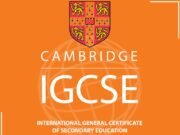
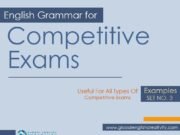





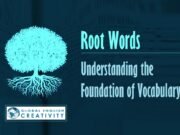















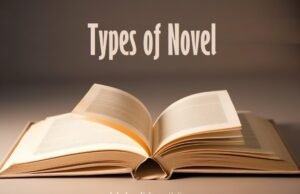










Very nice sir .thanks for making easy pattern
Wonderful sir thanx for making easy pattern solutions
Nice